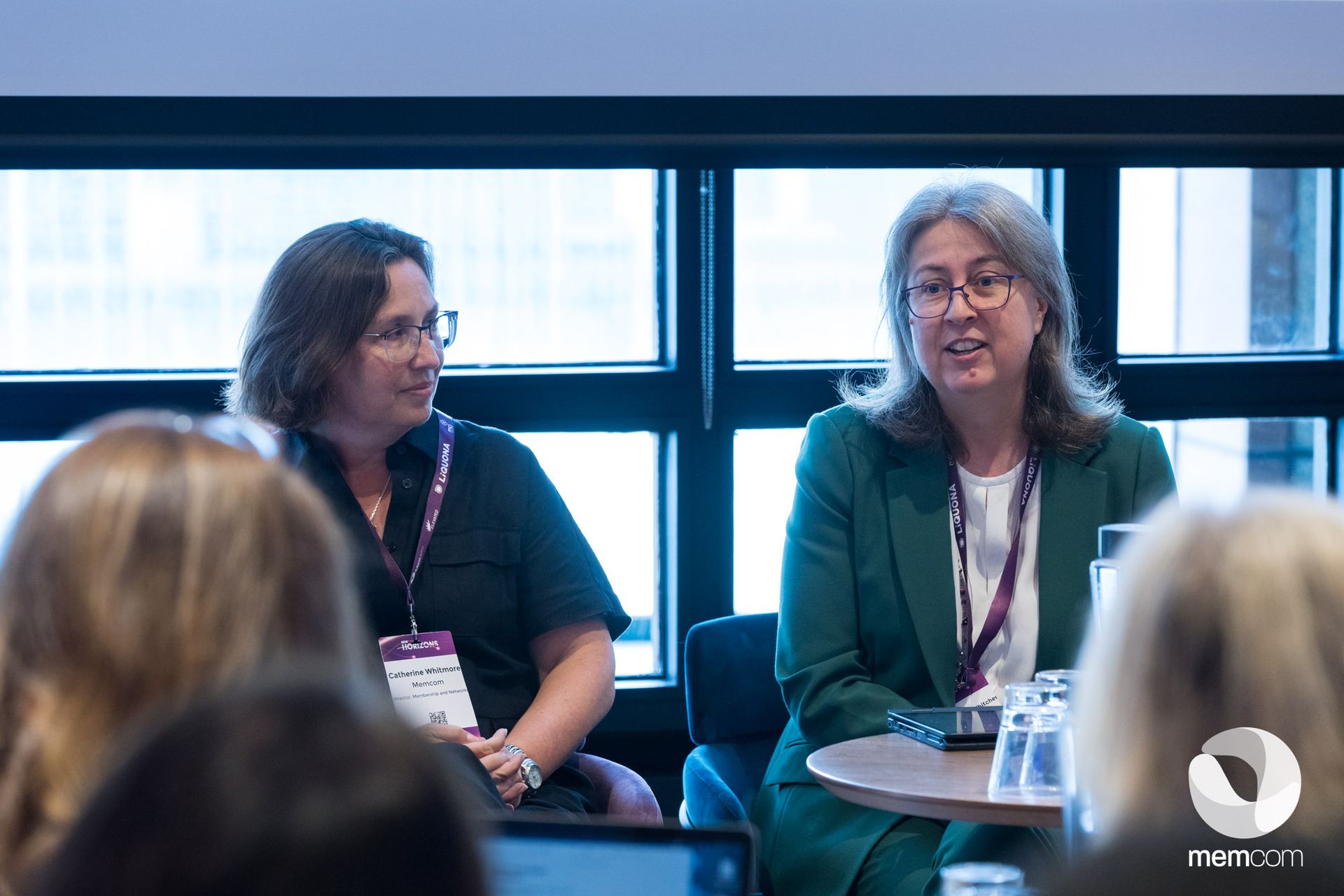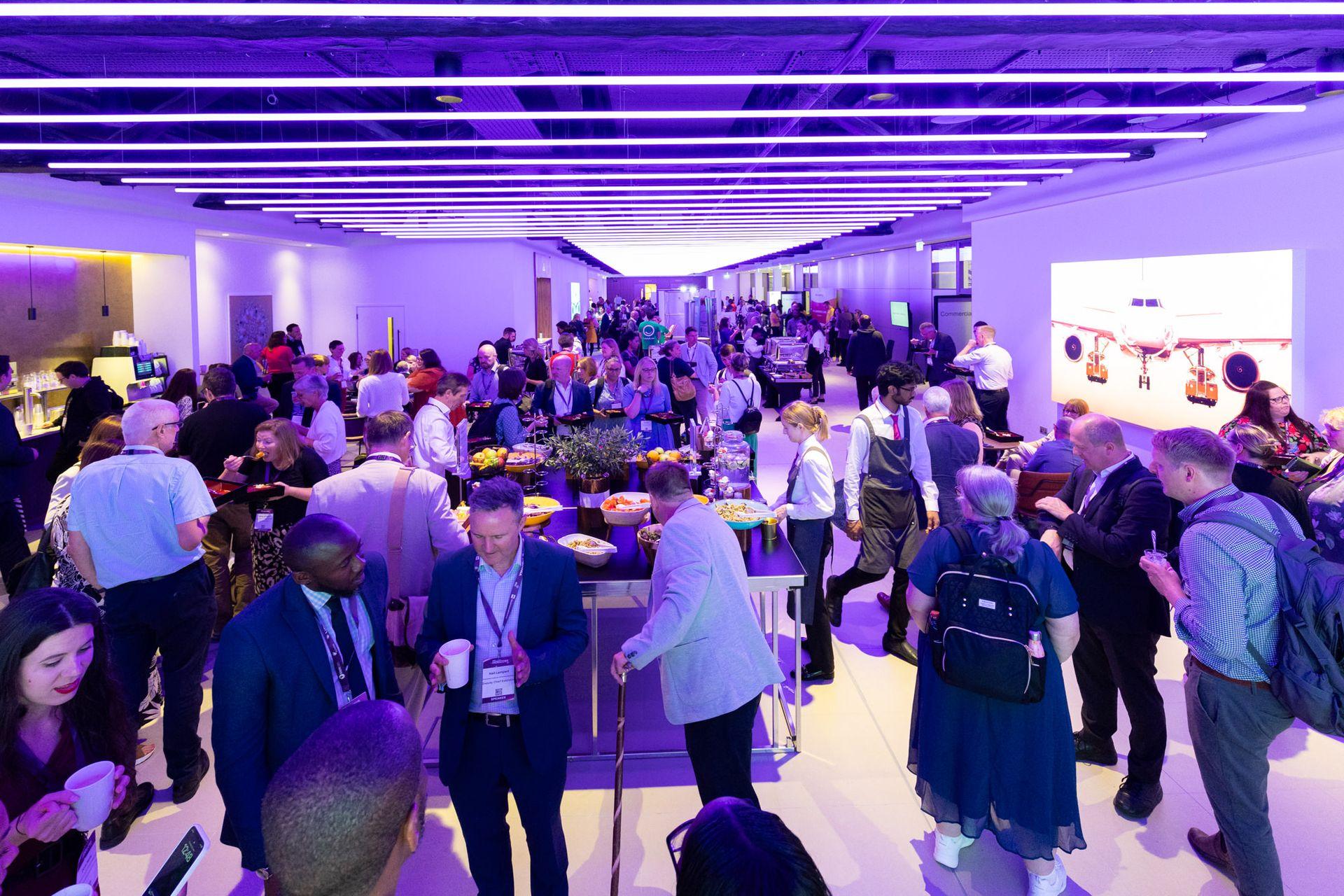Over the last month, a survey conducted by Memcom and the Institute of Occupational Safety and Health (IOSH) has gathered quantitative and qualitative data from 116 organisations. The aims of the project are to gauge the current state of the sector and to enable participants to benchmark all aspects of their operations against similar organisations.
Joanna Flinders, Head of Corporate Strategy, IOSH, and Ruth Bolle, Managing Partner, Research by Design, gave an overview of the findings of the first edition.
Key concerns for CEOs
When CEOs were asked ‘what would have the greatest impact on their organisation over the next 5 years?’ 68% were concerned about advancements in technology.
Other popular responses:
- Desire for membership 46%
- Environmental responsibilities 37%
- Cost of living (impact on both organisation and members) 37%
- Workforce wellbeing 32%
Other issues keeping CEOs awake at night included:
Remaining relevant
- Revising membership offer to attract new and more diverse members without alienating and losing existing ones
- Keeping pace with changing customer requirements and being able to adapt quick enough to not only service, but lead customer needs. Securing talent with the capabilities required to achieve this
- Getting structure and processes right
Turbulence
Inflationary cost pressures across the organisation and ongoing disruption in the wider operating environment has made things so unpredictable for so long that it is very hard to plan ahead with any real degree of confidence.
Membership benefits
What are the key benefits for your members?
- Conference 78%
- CPD Content 66%
- Magazine 63%
- Sectoral networking events 56%
- Regional networking events 55%
- Other 45%
Those who selected ‘other’ went on to specify a range of intangible benefits such as the reputation of the professional body, influence on regulation, being part of a collective voice, and support, among others. Perhaps membership organisations could rely less on transactional offerings and place greater emphasis on these intangible benefits in their pitches to prospective members.
Three-quarters of respondents are planning more non-digital engagement over the next 12 months. Post-Covid, organisations appear to be responding to members who miss face-to-face interaction.
Dependence on membership fees
Smaller organisations may be more vulnerable due to the high proportion of their income which comes from membership fees. Of respondents whose organisation had an annual income of less than £1 million, 87% said that membership fees were their biggest source of income, compared to 73% of respondents overall. Publications provided the largest source of income for 11% of those surveyed, and Exams for 5% of respondents.
Half of the organisations surveyed increase member fees every year, and the majority base these increases on inflation.
More than 55% of respondents reported a 90% member retention rate.
Generational divide
The survey data suggests that new members coming in (Gen Z) are less loyal than members who are approaching retirement. This makes the question of how to remain relevant to newer members entering the market a fundamental one.
Respondents reported they were tailoring offerings to newer members’ needs in the following ways: •Providing support for new graduates and younger members of the profession through specific resources, CPD events, career coaching, targeted networks to encourage greater involvement.
- Looking at how the younger generation like to study and learn, adapting qualifications accordingly
- Introducing student membership categories
- Developing online personalisation and connection
A surprising 35% of organisations said they were not tailoring benefits to different segments within the membership.
Around half the organisations surveyed do not have an EDI strategy for members. This may be a missed opportunity as diversity is seen as a greater priority among Gen Z. It may also speak to the internal conversations which many organisations are having around how ‘political’ they should be.

Talent pipeline
During the discussion, Vanessa Harwood-Whitcher, Chief Executive, IOSH, highlighted concerns about attracting talent, and emphasised the need to promote careers in the sector.
“At the Memcom Chief Execs’ network, we often talk about losing talent out of the sector. Generally, it's quite difficult to compete on salaries, but as most of us are now working in hybrid ways, we can fish in a bigger pond.
Knowing all this change is coming, I wonder where am I going to find people who actually understand AI and can bring benefit into the organisation around that and embrace it, rather than panicking and worrying about it. It's a huge opportunity for us, so that talent pipeline is absolutely critical.”
Catherine Whitmore, Director, Memberships and Networks, Memcom:
“Defining ourselves, marketing ourselves and acting as a sector would be a good start. The charity sector does a good job of this, and I think maybe we're missing a trick in terms of bringing people in and letting them see that they do have a career in the membership sector. The impact that we can have is amazing: the people that we represent, the professions that we work with, but we need to talk about it more as a whole.”
Vanessa Harwood-Whitcher:
“It's a hugely diverse sector. There's a real ability to swap between different roles within membership organisations, and between the different professions that we support. I personally think it's been a brilliant career. I know so much about lots of different professions, having moved around, that I never would have known any other way. Surely that makes me more employable, more informed? We need to champion our sector!”
We aim to repeat the survey on a 6-monthly basis so you can track your progress and any changes in the sector. Respondents to the first edition of the survey will receive the data in the coming weeks. If you did not participate and would like to purchase a copy of the findings, please contact Catherine@memcom.org.uk

